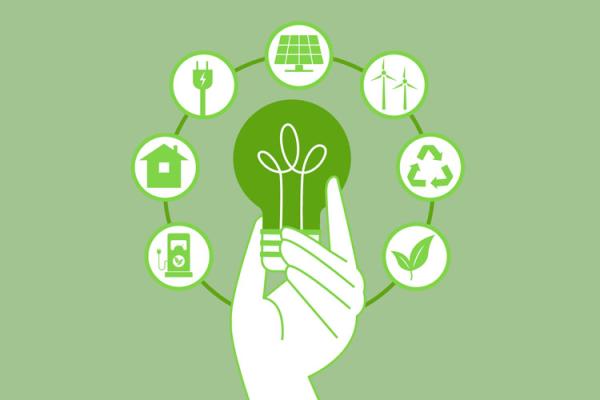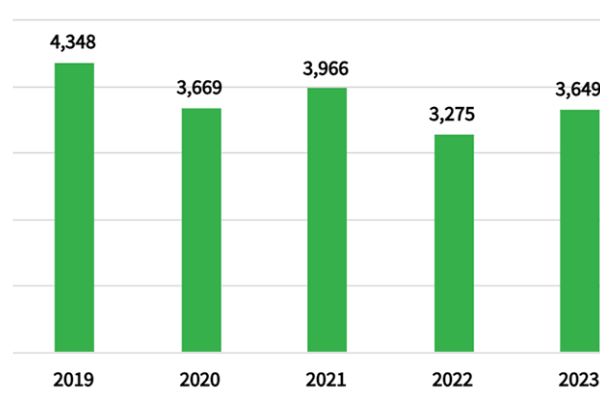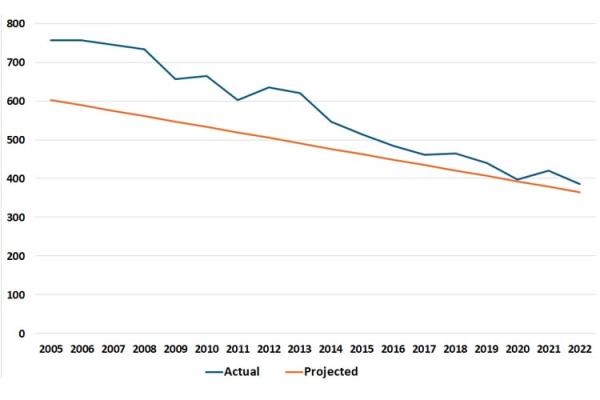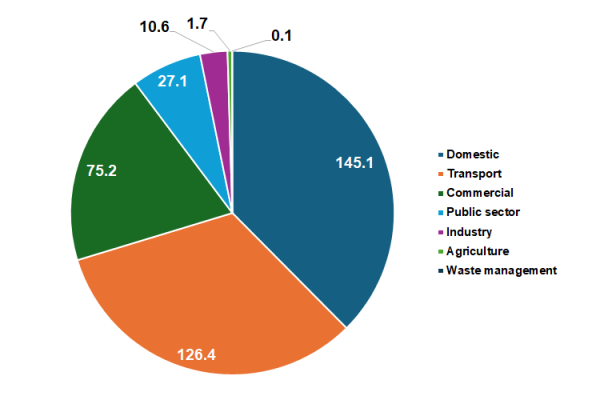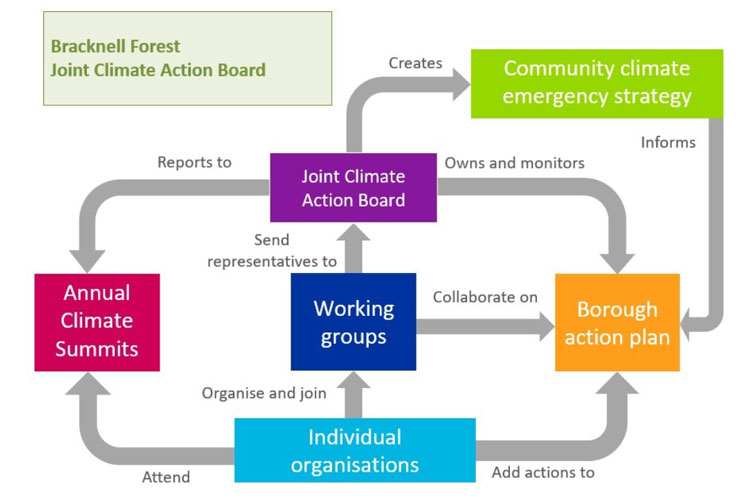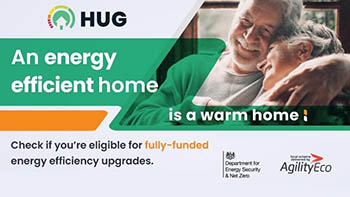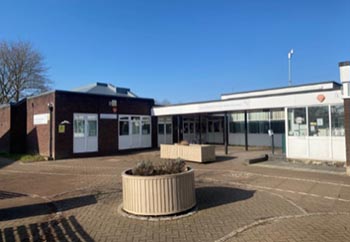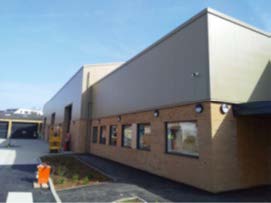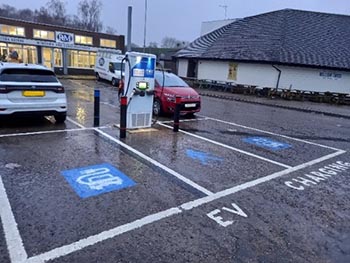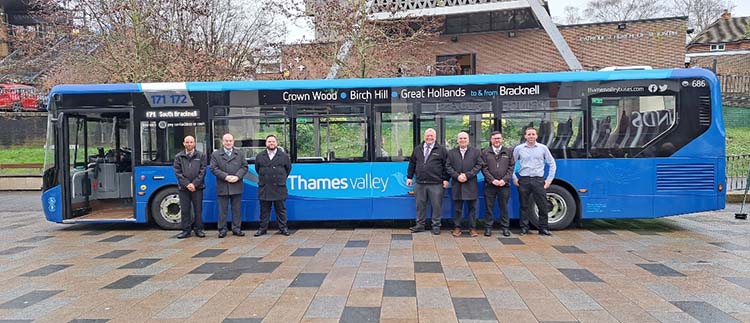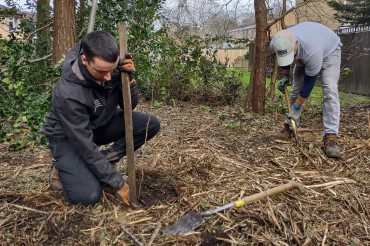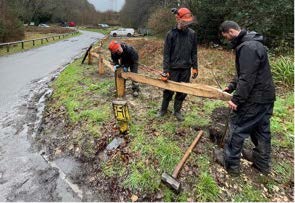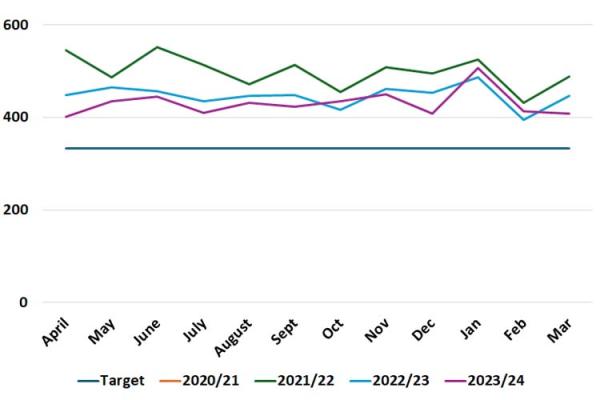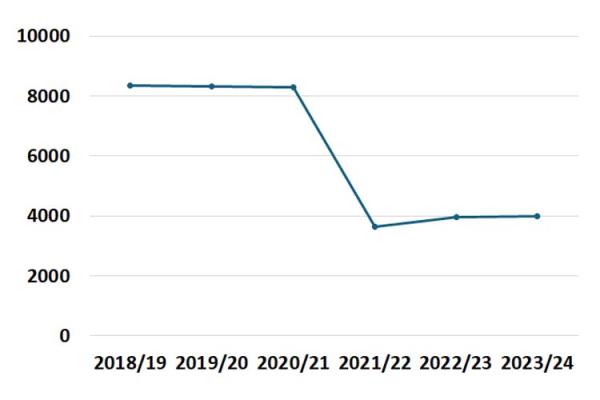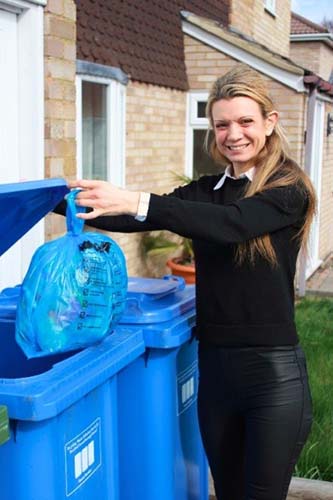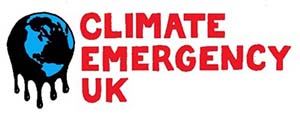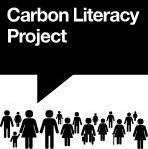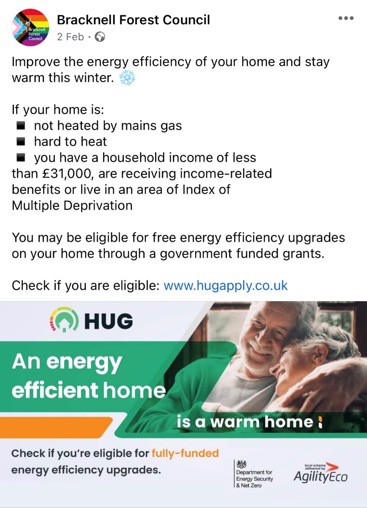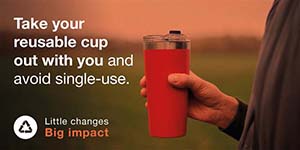Introduction
This report seeks to summarise the activities of Bracknell Forest Council towards mitigating the impacts of climate change over the last financial year. It is always useful to remind ourselves of the wider context in order to relate our local actions.
National vs local context
National legislation means the UK is legally obliged to reach net zero by 2050 and reduce emissions by 78% compared to 1990 levels by 2035. Progress towards these national targets and on adapting to the effects of climate change are prepared by the Climate Change Committee (CCC), an independent statutory body which reports to Parliament.
National government has relaxed a number of key targets in specific areas within the last year - notably around the speed of phasing out diesel and petrol fuelled vehicles and the pace at which gas boilers are to be phased out. With the recently announced general election in July 2024 bringing about the possibility of a change of government, a degree of uncertainty surrounds current national policy.
Local authorities and the carbon budget
The sixth carbon budget in the UK covers the period from 2033 to 2037. This budget was recommended by the CCC to align with the UK’s commitment to reach net zero emissions by 2050, as well as the goal to limit global temperature increase to below 2oC by 2050, as set out in the 2015 Paris Agreement. The budget acknowledges the critical role of local authorities in driving down emissions and advancing climate action across the UK. The budget itself primarily sets national targets and strategies, but seeks to empower local governments to devise customised solutions and foster community engagement, thereby catalysing efforts to reduce emissions and facilitate the transition towards a low-carbon economy.
As outlined in the sixth carbon budget, local authorities are well positioned to:
- have significant influence over urban planning and development decisions
- play a crucial role in transportation planning and infrastructure development
- be responsible for climate conscious waste management
- foster community engagement, partnerships and collaboration
A Bracknell Forest Council context
The Bracknell Forest Council Local Plan was formally adopted in March 2024, providing the template for planning and development through until 2037. The plan will enhance several requirements related to improving the environment and mitigating the impacts of climate change but draft proposals to include even more stringent environmental requirements were unfortunately removed by the inspectorate.
The Local Transport Plan is up for review in 2024 and will seek to incorporate several climate change related principles within it. The Transport Working Group associated with the Joint Climate Action Board are already engaged in activities supporting the review.
The council successfully switched to current kerbside domestic waste collection arrangements in March 2021. A switch which resulted in a 12% increase in recycling rates. The latest intentions signalled by the Department for Environment, Food and Rural Affairs (DEFRA) in May 2024, state that they intend to issue statutory guidance to make sure that minimum service standards are maintained around residual waste and that local authorities collect refuse at least fortnightly. There is also to be new legislation known as Simpler Recycling. This will mean all local authorities have to collect the same items and materials for recycling. The impacts these changes may have on overall recycling rates are as yet unknown.
There has been something of a step-change in the council’s approach to fostering greater engagement and collaboration around climate change in the last year. The borough will hopefully benefit from this approach over the next few years as we seek to build on our initial foundations and support the delivery of a Community Climate Emergency Strategy.
